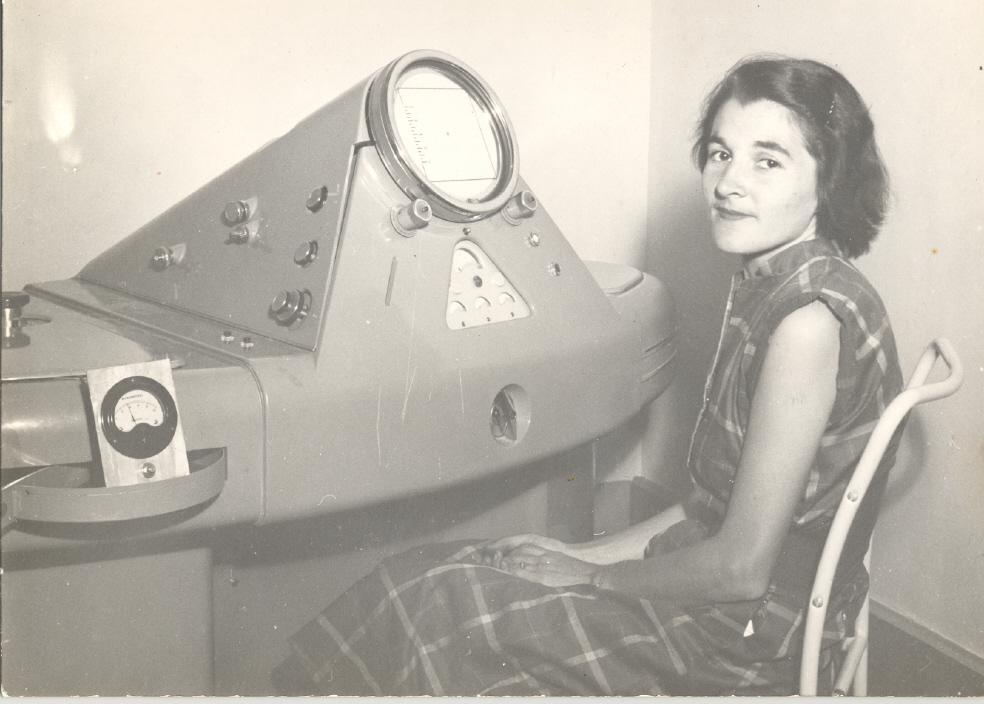Celebrating women in STEM
Ada Lovelace Day (ALD), held on the second Tuesday in October, is an international celebration of the achievements of women in science, technology, engineering and maths (STEM). It aims to increase the profile of women in STEM and, in doing so, create new role models who will encourage more girls into STEM careers and support women already working in STEM. Ada Lovelace was one of the very first computer programmers.
There are many extraordinary women who have studied STEM at the University of Adelaide. Read on to find out more about one of the most ground-breaking, Barbara Kidman.
Barbara Kidman, PhD (Physics)
The first woman University of Adelaide graduate of Honours Physics (First Class) (1949); Joint first woman Ph.D. in Physics (1956); Computer programmer (1960s); and first woman lecturer in Computing Science (1970).

Barbara Kidman with Department of Physics electron microscope, 1953.
Photograph courtesy University of Adelaide Archives.
Dr Kidman’s intellectual gifts were encouraged by her family and a series of secondary teachers. Significantly, she was allowed to study and matriculate in the traditionally male dominated science stream. In the mid-1940s she gained a scholarship to enter the University of Adelaide and in 1948 was conferred the degree of Bachelor of Science. The following year she became the University’s first woman graduate in Honours Physics, earning a first class degree.
With her husband, the noted mathematician Renfrey Potts, she spent the early-mid 1950s at some of the world’s leading universities, including undertaking research at Oxford. Following her return to Adelaide she continued her doctoral work and subsequently became, with fellow researcher Barbara Possingham, the joint first woman to be awarded a Ph.D. in Physics. Dr Kidman returned to work in the mid-1960s as a programmer in the pioneering field of computing science and in 1970 was appointed the first woman lecturer in computing science. She continued lecturing and designing courses at all levels throughout the 1970s and early 1980s.
Following her retirement Dr Kidman’s substantial engagement with the University has continued in many capacities: as a published historian of science, in setting up the Science Chapter of the Alumni Association, and in conducting heritage tours of the institution. In 2002 the Barbara Kidman Women’s Fellowship Scheme was established to support female academics, and on the 50th anniversary of the conferral of her Ph.D. the Physics Institute unveiled a plaque to commemorate her achievement. She is a founding member of the University Archives Volunteer Group, working to preserve and make accessible the University’s recorded history.
Credit: University Archives
